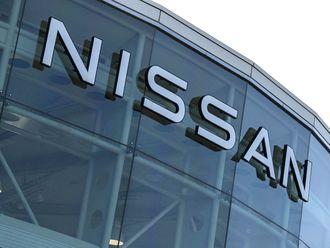New York: KFC’s parent company Yum Brands Inc says its profit fell in the latest quarter but that sales trends were improving in its critical China division, which has been reeling from a bird flu scare.
The company, which also owns Pizza Hut and Taco Bell, said sales in China were down 10 per cent at restaurants open at least a year for June. That’s better than the 19 per cent drop in May.
In addition to the bird flu scare, Yum is still trying to shake off the lingering effects of a controversy over its chicken supply. That trouble sprang up after a Chinese TV report revealed in December that some suppliers were giving chickens unapproved levels of antibiotics. The fallout was so damaging that Yum dramatically revised down its forecast for the year, saying it expects its earnings per share for the year to decline. That would snap a years-long streak of double-digit growth.
Although the company stood by that forecast for earnings per share to decline in the mid-single digits on Wednesday, it also noted that sales trends in China are expected to continue improving and turn positive by the fourth quarter.
“The news has dissipated regarding Avian flu and any of the residual effects of the antibiotic situation,” said Jonathan Blum, a Yum spokesman.
As such, he said the company is no longer actively running any marketing campaigns addressing either issue.
China is an important region for Yum, which has benefited greatly from the country’s rapid economic growth in recent years. The company has more than 5,900 locations in China, most of them KFC locations, making it the biggest Western fast-food operator on the ground. Although it has more than 37,000 locations globally, its China division has a disproportionate impact on profits because the company owns most its restaurants there, while it primarily franchises locations in the rest of the world.
Back at home in the US sales at restaurants open at least a year rose 2 per cent at Taco Bell. The chain has benefited enormously from the launch of Doritos-flavored tacos and recently rolled out a Cool Ranch variety, with another flavor expected soon.
At KFC, which recently introduced new boneless chicken pieces, sales rose 3 per cent at restaurants open at least a year. The figure is a key metric because it strips out the impact of newly opened and closed locations.
At Pizza Hut, the sales figure fell 2 per cent despite introductions such as the pie made with a crust of cheese-filled dough pockets. Pizza Hut is struggling at a time when other pizza chains such as Dominos and Papa John’s are aggressively dangling deals.
“Frankly, our competitors have done a better job with providing compelling value,” Blum said. He said the chain will be more “consistent” with its value message going forward.
The company, which is based in Louisville, Ky, says it earned $281 million, or 61 cents per share, for its second fiscal quarter. That’s compared with $331 million, or 69 cents per share, a year ago.
Excluding one-time items, it earned 56 cents per share, which was above the 54 cents Wall Street expected.
Total revenue fell to $2.9 billion and fell short of the $2.93 billion analysts had forecast, according to FactSet.
Yum’s stock edged up almost 1 per cent to $72.85 in after-hours trading.












